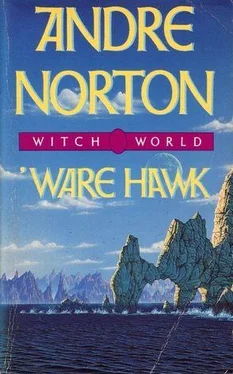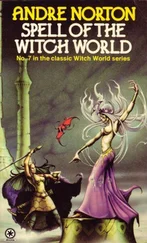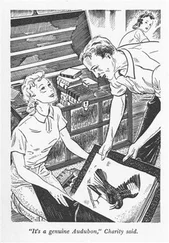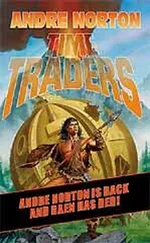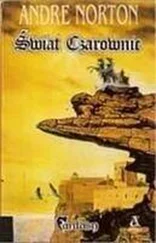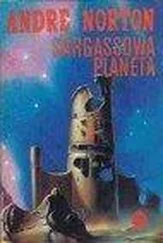Andre Norton - Ware Hawk
Здесь есть возможность читать онлайн «Andre Norton - Ware Hawk» весь текст электронной книги совершенно бесплатно (целиком полную версию без сокращений). В некоторых случаях можно слушать аудио, скачать через торрент в формате fb2 и присутствует краткое содержание. Жанр: Фэнтези, на английском языке. Описание произведения, (предисловие) а так же отзывы посетителей доступны на портале библиотеки ЛибКат.
- Название:Ware Hawk
- Автор:
- Жанр:
- Год:неизвестен
- ISBN:нет данных
- Рейтинг книги:4 / 5. Голосов: 1
-
Избранное:Добавить в избранное
- Отзывы:
-
Ваша оценка:
- 80
- 1
- 2
- 3
- 4
- 5
Ware Hawk: краткое содержание, описание и аннотация
Предлагаем к чтению аннотацию, описание, краткое содержание или предисловие (зависит от того, что написал сам автор книги «Ware Hawk»). Если вы не нашли необходимую информацию о книге — напишите в комментариях, мы постараемся отыскать её.
Ware Hawk — читать онлайн бесплатно полную книгу (весь текст) целиком
Ниже представлен текст книги, разбитый по страницам. Система сохранения места последней прочитанной страницы, позволяет с удобством читать онлайн бесплатно книгу «Ware Hawk», без необходимости каждый раз заново искать на чём Вы остановились. Поставьте закладку, и сможете в любой момент перейти на страницу, на которой закончили чтение.
Интервал:
Закладка:
“Away from the walls!” She was not sure in what direction what was coming might strike, and they might all be buried. In that fashion, what she still held would be made safe.
The Falconer threw himself forward. With his clawed arm he swept the boy flat to the floor, thrusting him against Tirtha, while she cringed from the pain the contact caused her. Then the man was on his knees, arching his own body over the two of them. His mailed chest nearly flattened the bird as he tried to protect them.
A second tremor moved to the floor. The flames flared out fiercely, still there was no heat in them. Now the shadow sword tilted in the air, though perhaps Tirtha, lying face up as she did, was the only witness. No longer did it hang point down; rather it stretched horizontal, and it grew longer, wider, casting over the three of them a shadow.
The ragged tapestries on the walls swung as they might have had a tempest caught them. Pieces of cob-web-thin fabric tore loose, to settle on the three so entwined.
There came a crash. Behind a fall of the rotting fabric, a widening break in the wall showed, stones loosened, fell outward and away. In the dark beyond, a second wall came into sight. That, also cracked, swayed out, to crash. The light of day flooded in—a day of sullen skies and great bursts of lightning, which sent force whips lashing across the sky. Thunder was war drums beating up an army.
Tirtha saw that opening. They could go, these two, the way was open. In so much had the Power which had brought her here answered her plea. She tried to break her hold on the casket with one hand, thrust the Falconer up and away from her so that he could see that door to freedom and take it—he and Alon. Yet she could no longer detach her flesh from the box. There was movement; the bird swept across her face, though she felt no brush of feather. It passed out from under the hanging sword, turning in the air, sped like a well-thrown lance out into the midst of the storm where its gray body became one with the half-light, gone from their sight.
“Go…” Tirtha tried to raise her voice above the violence of the thunder. There came another crash, another portion of that outer wall disappeared. Now there was a strange smell in the air, though it held none of the noisome stench of the Dark. She was sure that lightning had struck very close, perhaps somewhere on the building.
The Falconer levered himself up. The flames that had played about their heads had been snuffed out; the outline of the shadow sword was gone. It would appear that all manifestations of that other Power had been withdrawn. There was an open door to freedom, yes, but one she could not take.
Tirtha was enough of a healer to be sure that her back had been broken and that, even if they moved her (which she believed they could not do), it would only prolong the end for her, in turn putting them into greater danger. Better she had been buried under collapsing walls, taking with her what she was born to guard.
The Falconer was on his feet, pulling at remnants of the tapestry. There were lengths here and there, which, when he dragged them free of the broken walls, seemed stouter. These he smoothed out on the floor, Alon scrambling up to help.
They had at length a padding of four or five thicknesses, as long as Tirtha was tall. She could understand their purpose and knew it would fail. But also she realized now they would not go forth and leave her. Perhaps death would come swiftly when they attempted to move her; she could wish for nothing more than that.
They were done at last. Now Nirel stooped above her. Tirtha bit her lip until she tasted blood. She gathered all her last strength to make certain that she would not give tongue to her agony. He knelt, and she felt his hands slip slowly under her shoulders. There followed such a wave of torment as made all her earlier suffering seem as nothing.
“My… belt… pouch…” She mouthed the words, and Alon must again have heard them first, for she saw his hands swift in their movement. “The… bag… with”—she had to swallow before pushing the last words out—“the dragon sign…put all… in… my… mouth—” This was the last mercy she hoped for. So powerful was this drug one used it with great care. To swallow all she carried was inviting the end. Let it come fast and free the two of them.
Alon had the smaller bag open. He held the mouth of it to her lips, shook free dried leaves that struck her tongue like a spoonful of dust. Tirtha choked, swallowed, choked, and fought to get the full portion down. Rightly, it should be taken as a brew. Swallowed dry in this fashion, she did not know how long it might need to work—she could only hope. Since the portion was far more than had ever been advised for use, she trusted it would serve.
Pain again, but through its piercing agony she continued to fight the dusty mouthful into her throat, swallowing convulsively. Then the world went scarlet with another protest from her broken body, and from that she passed into blessed nothingness.
She became aware not of her body, but of the self that had only before ventured forth in dreams and far-seeing. The relief of being free of pain was so great that she exulted in nothing else for a period of time. This, then, was what came afterwards—what mankind had so long speculated might lie at the end of the Long Road—freedom indeed.
Only she was not free. Dimly, through her relief, she felt the tug of some tie. At once she opposed it. Might a geas last past the very fact of death? How could she still be entrapped? Tirtha knew fear and then rage, and her rage was a fire blazing up about that inner self. No! She would answer to no one, to nothing!
Nothing, not even that call.
Call? Yes, from a far distance there was a call, a demand, an urgent command.
Then she knew that she was indeed not free, that her body still encased her. It was immobile, that body of hers—dead—while within it she was hopelessly imprisoned. There was no longer any pain, only the deadness. She was looking up into the sky from which rain fell in great sheets, though on her dead body she could not even feel its beat. It filled her eyes, and so she could only see as through a heavy mist.
Yet she saw and she heard.
“Take it, fool—it is what we have sought!”
“Take it and die, is that the way of it, Lord? You saw what happened to Rudik…”
“She is dead. Have you not proof of that by the bite of your own sword?”
“I have also seen Rudik. I do not seek what happened to him, Lord. This is of your desire—do you then take it.”
“Fool! Have I not said many times over, to each his own Powers? This is not of my knitting, and should I reach for it, it will be destroyed and none of us thereafter shall have the good of it. There are laws of the Talents and those may not be broken.”
“It was perhaps wrong to shoot down the bird-lover. We might have used him then…”
“Not so—you saw his weapon. It was well that your dart struck first, for that was a thing bound to him, and thus the same rule would have held.”
“Then use the boy. He has no weapon and he…”
There came an angry laugh. “Why must I be plagued ever by the service of fools? The boy—he is perhaps near as great a catch as this trinket box you so fear to meddle with. There will be pleasure for the Great One in meeting him! No—take up that box and now! I have held my hand because I know that you are short-gifted in wits and courage—you ravagers of an undone and ruined land—but need I compel you?”
“Lord, remember you are still only one among us, for all your talk of mighty forces that will come riding at your call. And Rudik is dead, in such a way as none of us here has any desire to follow. There is that other…”
Читать дальшеИнтервал:
Закладка:
Похожие книги на «Ware Hawk»
Представляем Вашему вниманию похожие книги на «Ware Hawk» списком для выбора. Мы отобрали схожую по названию и смыслу литературу в надежде предоставить читателям больше вариантов отыскать новые, интересные, ещё непрочитанные произведения.
Обсуждение, отзывы о книге «Ware Hawk» и просто собственные мнения читателей. Оставьте ваши комментарии, напишите, что Вы думаете о произведении, его смысле или главных героях. Укажите что конкретно понравилось, а что нет, и почему Вы так считаете.
